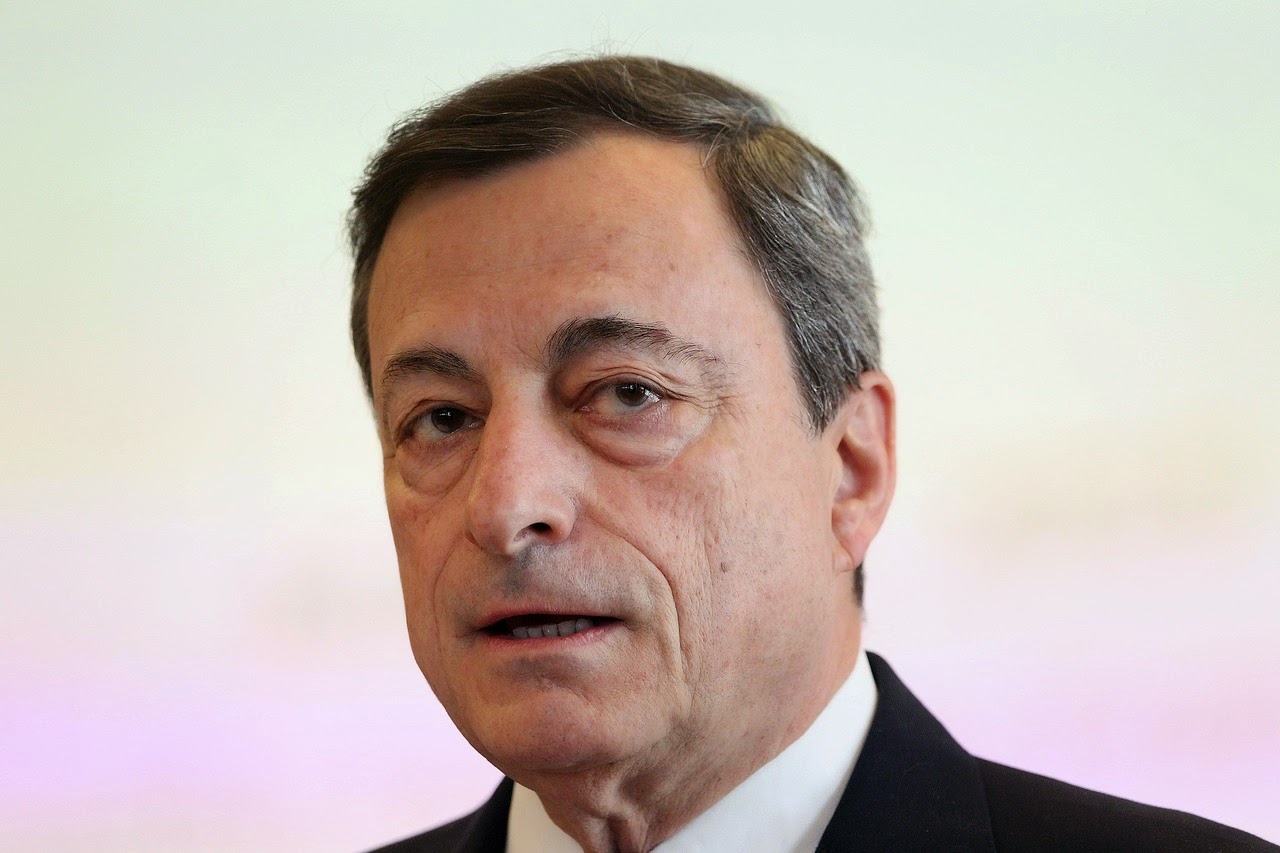Japan’s Devaluation Warning for Europe
Monetary easing without reform has reduced real wages.
March 16, 2015 7:28 p.m. ET
.
Amid the excitement as the European Central Bank began sovereign bond buying last week, Europeans might have missed that real wages in Japan fell again in January. Japanese households earn 7.5% less in inflation-adjusted terms now than before the 2008 financial panic, and about half of that decline has come during Tokyo’s “quantitative easing” program. This is a warning for Europe.
The similarities between Japan in 2013 as Prime Minister Shinzo Abe took power and the eurozone now are striking. Japan was in deflation; Europe has appeared close to it. Japanese worried that the yen, which had risen to around ¥77 per dollar in 2012, was badly overvalued. European Central Bank President Mario Draghi warned in April last year, when the euro was about $1.38, that “a rise in the exchange rate, all else being equal, implies a tightening of monetary conditions, a downward impact on inflation and potentially a threat to the ongoing recovery.”
So the Bank of Japan and ECB have fired their monetary bazookas at the deflation threat. The main goal has been competitive devaluation. With loan demand and banks weak, the traditional mechanism of monetary stimulus—increased liquidity and lower interest rates stimulating more lending—wouldn’t work. But policy makers hope a weaker currency will boost exports, higher earnings for exporters will trigger stronger business investment and trickle down to higher wages, which will lead to more domestic consumption and growth.
Because investment is declining, worker productivity isn’t increasing and wage increases are negative after inflation. Meanwhile, the weak yen has driven up import prices. This leaves households paying more for goods they consume every day, while wages don’t keep up.
Europe might appear immune to some of these negative effects. Today’s low oil price will offset the rising prices Europeans pay for other imports, a benefit Japan didn’t enjoy in 2013 and most of 2014.
Parts of Europe, especially Germany, have seen real wage growth in recent months from cheaper energy. No eurozone government seems ready to enact as monumentally foolish a policy as Japan’s consumption-tax hike, which dealt another blow to consumers.
Look closer, though, and similarities appear. The main explanation for Japan’s stagnant business investment and falling real wages is Mr. Abe’s failure to enact the “third arrow” of reform. Businesses face the same disincentives to invest as ever—overregulation, high taxes, protectionism and lack of competition.
The unreformed labor market is a particular offender. Job creation is concentrated on part-time workers as companies shy away from hiring full-timers who come with onerous restrictions on firing. That explains why real wages aren’t rising despite a tight labor market.
The same lack of reform typifies the eurozone. The boldest reform on offer is France’s proposed Macron Law, which among other things increases the number of Sundays a shop can open each year—to all of 12 from five. Spain, Portugal and Ireland have liberalized labor markets somewhat and implemented other pro-growth measures, but basketcases like Italy remain mired in red tape.
And sure enough, as in Japan, exporters in these unreformed economies have exploited the euro’s downward slide—to a 12-year low of $1.0457 Monday from $1.40 last May—mainly to boost profit margins. The eurozone is more regionally varied than Japan, so in some countries this earnings boost could stimulate production, investment, productivity gains and eventually rising wages.
But rising import prices are a particular danger in less-competitive southern Europe, which needs reform to bring business costs into line with the Germans, Dutch and other northerners. Instead, euro devaluation could push up prices for imports without compensating cost reductions as QE’s low interest rates ease the political pressure for reform. Workers could find themselves in a vise familiar to the Japanese.
***
Japan’s present isn’t Europe’s inevitable future. The eurozone isn’t aging as fast, and its regulatory ossification isn’t as severe. Perhaps something in the culture, or the water, will spur more competitive business behavior if export profitability improves. Maybe Europe’s relatively stronger unions will extract bigger pay increases.But no less an authority than Mr. Draghi understands the limits of monetary policy and competitive devaluation—and perhaps the dangers, too. He has spent the past year begging Europe’s political class to enact the supply-side reforms that would keep his monetary policies from turning Europe Japanese.


0 comments:
Publicar un comentario